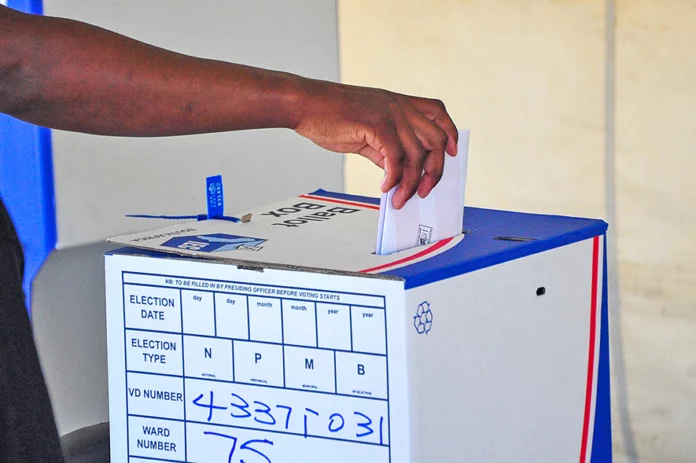The upcoming 2024 general elections have sparked the launch of a variety of small independent parties seeking to challenge the ruling ANC.
However, the motives of their existence have become a subject of more questions than answers.
Are they genuinely focused on benefiting ordinary South Africans, or are they just trying to soothe their despondency after conflicts with their former leaders?
Recent party launches, such as Mpho Dagada’s Arise SA, Songezo Zibi’s Rise Mzansi, and parties formed by former leaders including Mmusi Maimane, Abel Tau, and Bongani Baloyi, suggest a desire for change in the country’s political trajectory.
But, some parties appear to have been formed due to “irreconcilable differences” with their previous leaders, rather than a genuine desire to bring about change.
One such party, Xiluva, was hastily launched by former Midvaal mayor and former Gauteng chairperson of ActionSA, Baloyi, after a dispute with his former leader, Herman Mashaba.
Despite being offered positions as the party’s national spokesperson and a member of the senate, Baloyi aspired to become a leader in his own right.
Questions have arisen about just how much prepared was Baloyi for his own political future. Within weeks, all indications are that not much thought was put into the idea.
That is if small things such as producing a proper party logo are anything to go by.
Baloyi was found wanting after he revealed the formation of his new political project in a statement full of grammatical errors, raising concerns about the party’s readiness to enter the political arena, a cutthroat terrain that is not for the faint-hearted and disorganised.
In contrast to Baloyi’s lack of readiness, fellow newcomers such as Arise SA and Rise Mzansi announced their arrival with sheer professionalism, with little room for schoolboy errors for the new kids on the block.
But still, a lack of political background from these new parties launching en masse raises questions about their ability to effectively navigate the political landscape ahead of what is billed as the watershed national polls since the democratic dispensation.
Tau, another former member of ActionSA, started his own party after being fired amid a sexual misconduct scandal.
The former MMC for human settlements in the City of Tshwane started his party while still in ActionSA, suggesting a measure of unpreparedness and a desire to prove himself as a leader.
Similarly, former DA leader Maimane founded Build One SA after leaving the party after wooing a few black votes while driving away the traditional voters of the blue party which culminated in the DA’s dismal performance in the 2019 general polls.
Initially claiming to be a non-profit organisation, the party later became an independent political party with a stated desire to contest state power.
While the birth of these new parties is refreshing, it remains to be seen whether they are genuine and capable agents for change or are merely selling dreams to the disillusioned electorate gatvol with the governing ANC.
Many before them have struggled to dislodge the ANC, which continues to be in power in South Africa not because people keep voting for them, but because voters see no credible political alternative.
Many that were equally launched with similar if not bigger fanfare than those that have launched recently have battled to dethrone the ANC owing to what eventually became exposed as the real reasons behind their formations – to provide employment and economic opportunities for leaders who had lost favour in other political formations.
This weakness has often created perceptions of a lack of internal democracy in these parties, a repellant to the electorate, as those that form these political platforms tend to overstay their welcome at the helm.
The SA political history is rich with such examples which include the IFP, UDM, and Cope, with the EFF and ActionSA appearing to be headed in the same direction.
The IFP, UDM, and Cope – all ANC splinter parties – have failed to elect different leaders to founders for more than 15 years, giving an impression of cults.
The EFF, in its 10th year since formation, is facing the same challenge, as many look to their third national conference billed for next year wherein if the current president of the party Julius Malema emerges victorious, the party might struggle to grow further.
Mashaba with ActionSA has come under heavy criticism for having not gone to an elective conference since the establishment of the party and “appointing” provincial leaders and firing at will those who disagree with him.
Overall, it has emerged as a stumbling block to growth for parties built around personalities.
It remains to be seen if the newcomers birthed this year will learn from history or perish just like the hopefuls that came before them.
Only time will tell.
To read more political news and views, click here.
Follow @SundayWorldZA on Twitter and @sundayworldza on Instagram, or like our Facebook Page, Sunday World, by clicking here for the latest breaking news in South Africa.



